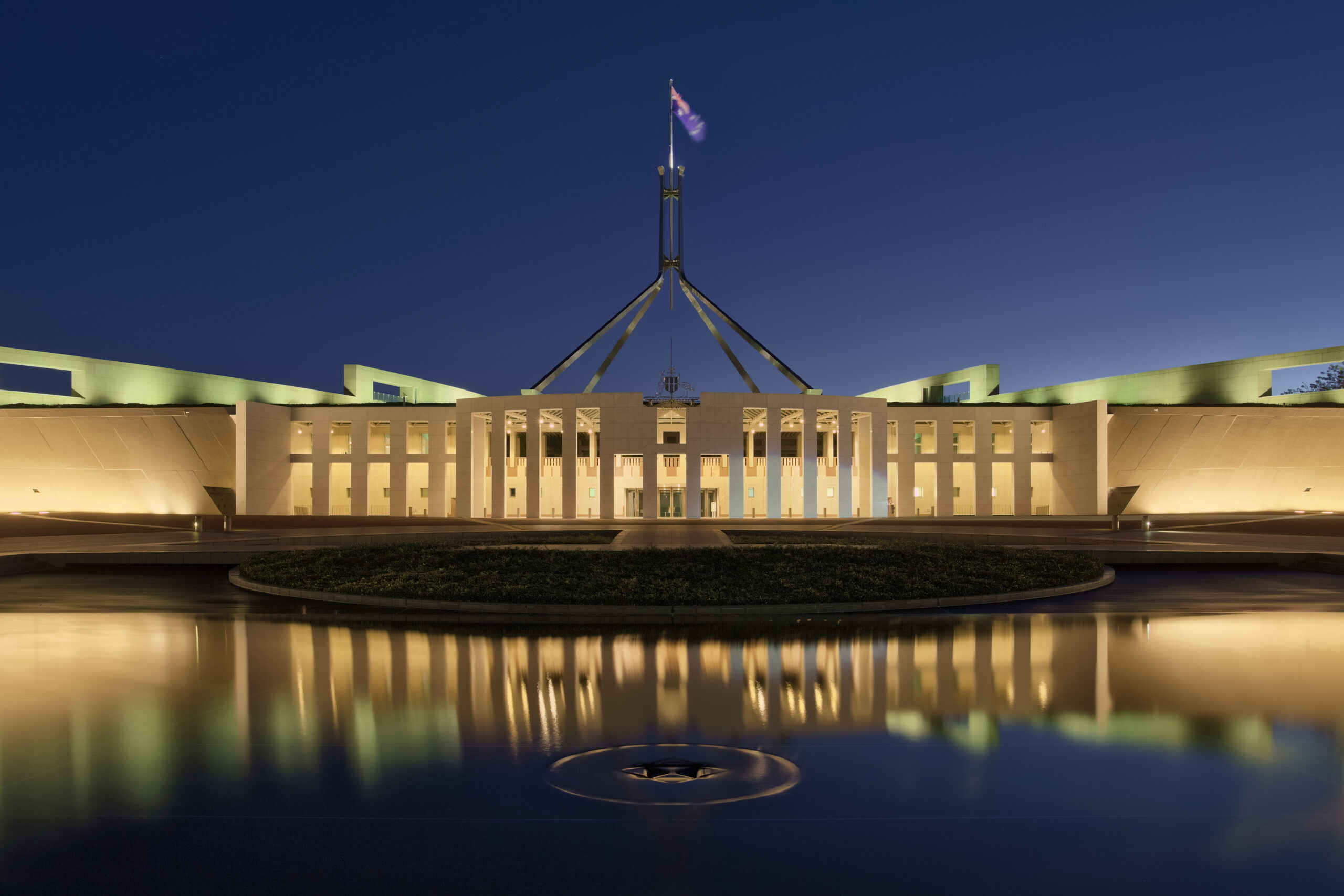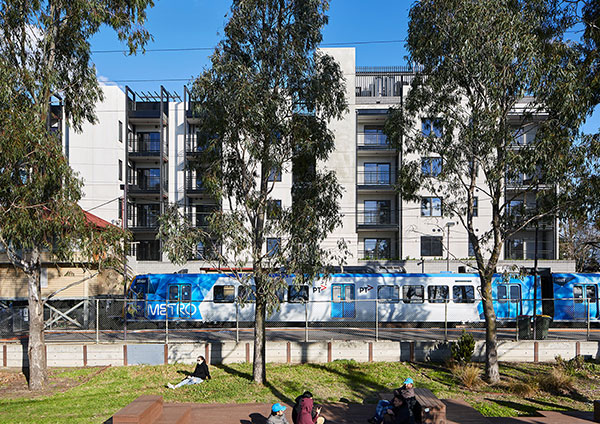The economy
Growth over the next two years is expected to be weak. The Australian economy is expected to outperform all major advanced economies but is slowing in the face of a deteriorating global economy, high inflation and high interest rates. Cost-of-living pressures are squeezing households and slowing domestic demand.
Real GDP growth is expected to slow to 1.5 per cent in 2023-24, before recovering in 2024-25. More jobs are being created and the unemployment rate is expected to stay low by historical standards.
The Government is delivering targeted cost-of-living relief that will directly reduce price pressures and the CPI by 0.75 of a percentage point in 2023-24. Nominal wage growth has picked up and is expected to build to 4 per cent in 2023-24.

Summary: Headline Policy Initiatives
- Around $15 billion in cost-of-living relief. This will be spent over the next four years and will include $1.5 billion in electricity bill relief for 5.5 million households and about 1 million small businesses. Pensioners, people on other income support payments, and small businesses will have their energy bills subsidised by up to $500, with the amount determined by where you live in Australia.
- Changes to the dispensing rules to allow people to buy two months’ worth of medicines on a single prescription, affecting more than 300 common medicines.
- The cheaper childcare package is included in this budget and provides more affordable childcare for about 1.2 million families. It will see total spending on subsidies of $55.3 billion over the next four years.
- Spending of $11.3 billion to fund a 15 per cent pay rise for aged care workers.
Establishment of a Net Zero Authority to help communities attract new clean energy industries and support investors with those opportunities. - Investment in energy improvements for households via the $1.3 billion Household Energy Upgrades Fund will create low-interest loans and fund upgrades to social housing to improve energy performance.
- $36.7 million to provide households with access to better information about where they can save energy and reduce their energy bills.
- Development of a comprehensive National Urban Policy to address urgent challenges facing major cities.
$150 million urban Precincts and Partnerships Program will fund both the development of precincts through facilitating planning, design and consultation, leading to business cases for investment-ready proposals.
Funding for the government’s new National Anti-Corruption Commission (NACC) with a commitment of $262.6 million over four years to support its establishment. - $535.3 million in funding, over the next four years, for Australia’s nine national collecting institutions, including the National Gallery of Australia; National Library of Australia; National Museum of Australia; National Portrait Gallery of Australia; National Film and Sound Archive; National Archives of Australia; Australian National Maritime Museum; Bundanoon Trust; Museum of Australian Democracy (Old Parliament House).
National Urban Policy
The Government will develop a comprehensive National Urban Policy to address urgent challenges facing our major cities – from equitable access to jobs, homes and services, to climate impacts and decarbonisation.
This policy reform will be matched with new programs – Thriving Suburbs and Urban Precincts and Partnerships – ensuring urban communities can partner with the Australian Government to deliver essential community infrastructure and precinct-level development.
The Thriving Suburbs Program is being funded with $200 million over two years from 2024-25 to provide merit-based and locally driven grants that address shortfalls in priority community infrastructure in urban and suburban communities.
The $150 million urban Precincts and Partnerships Program will support investment in urban Australia This program will fund both the development of precincts through facilitating planning, design and consultation, leading to business cases for investment-ready proposals, as well as a stream to support the delivery of larger scale precinct projects.
A new Cities and Suburbs Unit (CSU) will be established to deliver this work, including the State of the Cities reports, which provide an accurate and up-to-date picture of life in our cities. The CSU will also have oversight on National Cabinet urban planning matters to be discussed in Planning Ministers’ Meetings.
During 2023-24, the Government is also refreshing the White Paper on Developing Northern Australia – the cornerstone document in the Government’s Northern Australia agenda – including development of a new action plan to support sustainable and resilient economic development across the North.
Infrastructure
The Government will maintain the $120 billion rolling 10-year pipeline.
A 90-day independent review of the Infrastructure Investment Program will be undertaken.
$2.2 billion is allocated to strengthen regional connectivity, through $1.1 billion for the Better Connectivity Plan for Regional and Rural Australia – which includes initiatives such as the $30.0 million On Farm Connectivity Program and $20.0 million Broadcasting Resilience Program – and $1.1 billion towards NBN upgrades for 660,000 regional fibre connections.
National Heritage Trust
$439.2 million of Trust funding has been allocated to the Department of Climate Change, Energy, the Environment and Water over five years from 2023-24 to maintain the capability of regional partners, deliver benefits to Australia’s threatened species, support climate-smart agriculture, and protect internationally listed World Heritage properties and Ramsar wetlands.
National Climate Change Adaptation and Risk Program
The Australian Government has committed $27.4 million to deliver Australia’s first National Climate Risk Assessment and start developing a National Adaptation Plan.
With the impacts of recent flooding and bushfires still being felt by communities, the importance of building resilience and adapting to climate change is paramount. In light of new and changing risks from climate change, regions will benefit from better analysis, guidance and information about climate impacts on regional communities and key regional economic sectors.
Energy
With investment over the next four years of $83.2 million, the new legislated National Net Zero Authority will:
- Support workers in emissions-intensive sectors to access new employment, skills and support as the net zero transformation continues.
- Coordinate programs and policies across Government to support regions and communities to attract and take advantage of new clean energy industries and set those industries up for success.
- Help investors and companies to engage with net zero transformation opportunities.
The Clean Energy Finance Corporation (CEFC) will partner with the finance sector to upgrade homes, with activities including:
- battery-ready solar photovoltaic (PV) panels;
- improved insulation and windows;
- modern, energy-efficient appliances. This financing will help more than 110,000 households reach a net zero future and lower their energy bills.
The Energy Savings Package includes:
- $1 billion into the CEFC to partner with the finance sector to offer concessional loans and mortgages for household energy upgrades;
- $300 million over 4 years to target energy upgrades to vulnerable Australians in social housing;
- $310 million for the Small Business Energy Incentive to help up to 3.8 million small businesses with ongoing energy savings through energy upgrades;
- $36.2 million over four years (and $2.1 million per year ongoing) to provide households with better information about how to save on energy bills;
- Partnering with state and territory governments to deliver up to $3 billion (up to $500 for households and up to $650 for small business) of electricity bill relief for eligible households and small businesses.
The budget will improve the Nationwide House Energy Rating Scheme and expand it to existing homes, meaning people can soon get a star rating of their home’s energy efficiency, helping consumers make informed choices when renting or purchasing.
Environment
$28 million has been allocated to identify and prioritise nationally significant climate risks to Australia from climate change impacts, such as those relating to Australia’s environment, biodiversity, health, infrastructure, agriculture, and economy and provide a robust and scientifically sound evidence base for government investment in adaptation measures.
Housing
One million, new, well‑located homes over five years from 2024 (National Housing Acord).
- A new tax break for build‑to‑rent projects, cutting the managed investment trust withholding tax from 30 to 15 per cent and increasing the capital works tax deduction (depreciation) rate from 2.5 per cent to 4 per cent per year, increasing the after-tax returns for newly constructed build-to-rent developments.
- Increasing the liability cap of the National Housing Finance and Investment Corporation by $2 billion, to $7.5 billion to support more lending to community housing providers.
- Implementation of the $10 billion Housing Australia Future Fund for social and affordable housing.
- Amending NHFIC’s Investment Mandate to require NHFIC to take reasonable steps to allocate a minimum of 1,200 homes to be delivered in each state and territory within five years of the Housing Australia Future Fund commencing operation.
Women
- Violence against women – National Plan to End Violence Against Women and Children 2022-32 ($1.7 billion provided in October budget). The budget delivers an additional $589.3 million for women’s safety.
- Gender Pay Gap – The Budget includes action to support wage equality. The Government is providing $11.3 billion to support a wage increase for many aged care workers. The Government is also setting targets in the Australian Skills Guarantee to help reduce gender segregation across industries and occupations, which will contribute to closing the gender pay gap.
- WGEA Act reforms – mandatory published gender pay gaps for businesses with 100 employees or more from early 2024.
- Fair Work Act reform giving gender equality appropriate weight throughout the workplace relations framework.
- Childcare and early childhood education support Cheaper Child Care for 1.2 million families.
- Flexible Paid Parental Leave extending access to Parenting Payment and changes to Paid Parental Leave scheme making it more flexible and generous.
- Education, employment and enterprise support: improving pathways for women into apprenticeships and other male-dominated industries.
- The Australian Skills Guarantee will apply from 1 July 2024 to projects with contracts valued at $10.0 million or more in the construction and information and communications technology sectors and will include sub-targets for women. More ambitious targets will be set for flagship construction projects with contracts valued at $100.0 million or more.
Procurement
The budget provides $18.1 million over four years from 2023-24 (and $1.5 million per year ongoing) to the Department of Finance (Finance) to improve the Government procurement process for business, including:
- delivering tools to improve the ability of businesses to compete for procurement opportunities more effectively;
- improving AusTender to increase transparency and establish a supplier portal for panels;
- increasing engagement with small-to-medium enterprises to promote awareness of opportunities to sell to the Australian Government;
- improving procurement and contract management capability across the Australian Public Service to deliver value-for-money Commonwealth procurements.
Other
Clean building managed investment trust (MIT) withholding tax concession
The Government will extend the clean building managed investment trust (MIT) withholding tax concession to data centres and warehouses.
This measure will extend eligibility for the concession to data centres and warehouses that meet the relevant energy efficiency standard, where construction commences after 7:30 PM (AEST) on 9 May 2023 (Budget night). This measure will apply from 1 July 2025.
This measure will also raise the minimum energy efficiency requirements for existing and new clean buildings to a 6-star rating from the Green Building Council Australia or a 6-star rating under the National Australian Built Environment Rating System. The Government will consult on transitional arrangements for existing buildings.
Employment and workplace relations
- National Skills Agreement: 180,000 fee-free TAFE and VET places in 2023.
- National Construction Industry Forum: $4.4 million over four years to support the establishment of the National Construction Industry Forum, which was legislated as part of the Secure Jobs, Better Pay Act and commences on 1 July 2023. The Forum arose out of the 2022 Jobs and Skills Summit and will provide advice to Government on tackling key challenges facing the building and construction industry by encouraging tripartite collaboration on issues such as safety, culture, skills, productivity, and gender equity.
- The Government is delivering on outcomes from the 2022 Jobs and Skills Summit by supporting the Fair Work Commission to conduct a review of modern awards.
- Support for a net zero economy through the enhanced Local Jobs Program.
Department of Industry, Science and Resources
- Targeted high-scale programs to transform priority sectors, including manufacturing, transport, logistics and trade:
- The National Reconstruction Fund (NRF) will provide targeted investment for projects in seven priority areas of the Australian economy. Investing in these priority areas will diversify and transform Australian industry, create secure, well-paying jobs and improve supply chain resilience.
- The $392.4 million Industry Growth Program (the IGP) will provide targeted funding to support small to medium enterprises (SMEs) and startups to commercialise their ideas and grow their operations. The agile and industry-led approach of the IGP will support businesses in their most challenging development phase.
- Continuing investment of $39.6 million in the Single Business Service will improve the effectiveness of government services and investment by ensuring businesses benefit from the suite of government initiatives.
- The Government is investing $101.2 million in quantum and artificial intelligence (AI) to accelerate critical technologies industries to increase local capacity and capability. This will support advanced manufacturing and increase the number of well-paying jobs in Australia in sectors crucial to national security and geostrategic interests.
- The Government will ensure Australia’s policy and regulatory settings enable industry, including the resources sector, to contribute to the global transition to net zero by 2050:
- The $14.8 million Powering Australia Industry Growth Centre (PAIGC) will provide advanced technology and skills development to businesses looking to locally manufacture renewable energy technologies. The PAIGC will support job opportunities and greater wealth for the nation by upskilling Australian businesses to manufacture, commercialise and adopt renewable technologies.
- The National Battery Strategy will further support industry’s transition to renewable energy. Batteries are crucial to Australia’s economic prosperity, supply chain security and renewable energy future. The strategy will support Australia’s intent to have a sustainable, thriving, end-to-end battery industry. The PAIGC and the National Battery Strategy are both components of the Australian Made Battery Plan and will complement the NRF.
- These measures are complemented by the department’s broader efforts to support Government to identify and manage critical supply chain risks, as well as opportunities and risks emerging from economic transition.
Related news

Hobart stadium ‘lacks process rigour’
The Australian Institute of Architects is disappointed at the decision to invest $715 million in a new sports stadium precinct in Hobart without due urban planning processes. Last night’s Budget

Affordable Housing Options a Win in Budget
The Australian Institute of Architects has commended the Australian Government on its multi-faceted approach to develop greater housing supply, diversity and affordability in its 2023-2024 Budget. The peak body for
